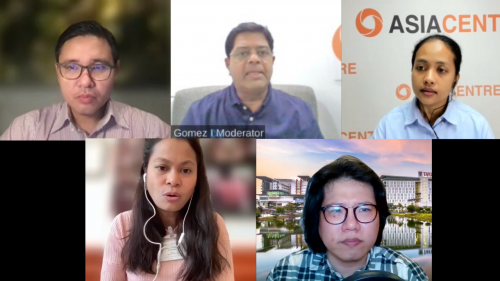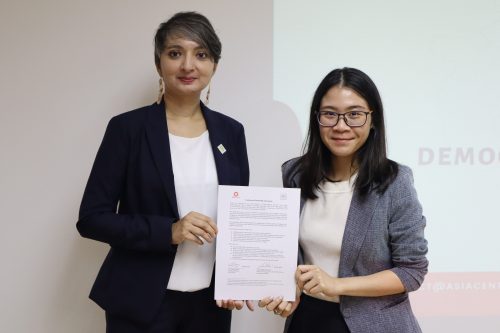Asia Centre is pleased to announce its membership in ADPAN, which works towards abolishing the death penalty in Southeast Asia and beyond, on the occasion of the 15th world anti-death penalty day on October 10, 2017. Southeast Asia has seen a resurgence in the use of the death penalty in recent years, notably in Malaysia and Singapore. Whereas it has been abolished in the Philippines since 2006, the current government seeks to re-instate its use. Indonesia and Vietnam appear to use this sentence liberally. Moratoria remain in other parts of the region.
The right to life is guaranteed under international human rights law. The death penalty for all types of offences runs counter to this fundamental right. Powerful arguments against this penalty have been advanced:
1) That the practice of the death penalty – an ‘eye for an eye’ approach – by States is not a good basis on which to build a peaceful society;
2) That this sentence is used mostly against poorer segments of society and vulnerable communities, such as the LGBTI community for the act of gay sex;
3) That it does not deter crime;
4) That miscarriages of justice may occur as many on death row may in fact be innocent;
5) That various methods of execution involve much pain and suffering to those sentenced (as powerfully depicted in the work of anti-death penalty artist Toshi Kazami); and
6) That long periods on ‘death row’ inflicts cruel, inhuman and degrading treatment on those thus sentenced and causes and pain on their families.
The United Nations (UN) has urged states to respect the rights of those facing the death penalty, to progressively restrict its use and to reduce the number of offences for which this sentence is used. UN Secretary General (SG) Antonio Guterres has stated that there was “no place for the death penalty in 21st Century” during an anti-death penalty event of the Office of the High Commissioner for Human Rights on 10 October in New York. Globally, some 170 countries have either abolished or stopped using the death penalty. The SG noted that four countries only were responsible for 87 per cent of all remaining executions and expressed concern over a worrying trend towards reversing long-standing moratoria.

Asia Centre has supported initiatives in line with ADPAN’s mission, which is to work for the abolition of the death penalty primarily across Asia and the Pacific and the world at large. The Centre organized a regional panel on the death penalty in 2015 and facilitated a discussion on Toshi Kazami’s exhibition in Bangkok in October 2016. TheCentre participated in ADPAN’s General Assembly as an observer on 20 July 2017 in Kuala Lumpur and also contributed to the subsequent two-day National Conference on the Abolition of the Death Penalty in Malaysia and in Asia-Pacific.
During the National Conference the Centre’s Dr. Robin Ramcharan called attention to the need for better and more strategic use of the Universal Periodic Review in efforts to advocate for abolition of the death penalty. Likewise, National Human Right Institutions have a vital role to play.
Asia Centre engages in evidence-based research on regional human rights issues and mechanisms, including on the death penalty. In July 2018, Asia Centre will examine, inter alia, the capacity of regional human rights instruments to contribute to the elimination of the death penalty.



